
 Image: Garry's Mod
Image: Garry's Mod
One of PC gaming’s biggest strengths is its flexibility, and that advantage shines brightest when you mod your PC games. While console games remain restricted to the gameplay and features shipped by developers, many PC games can be modified by the community to tweak almost any aspect of the experience. Mods can offer enhanced graphics, bug fixes, fresh quests, you name it. The best PC mods can change games completely—and sometimes kickstart whole new genres of their own.
This guide will teach you how to mod PC games, explaining the various resources available to find and install mods, as well as how to manage your mods to avoid potential conflicts. Welcome to the next stage of your adventure.
Note: We’ll start this article by explaining how to use mods in PC games, but since this is a beginner’s guide, we’ve got the why covered too. The second page details reasons you may want to mod your PC games, along with screenshots and examples of some of the more popular mods available.
How to mod a PC game
Before we begin, be aware that many multiplayer games, including Grand Theft Auto Online, will ban you if join an online session with modified files. (They’re allowed in GTA V’s single player though.) Other online games allow the use of quality-of-life mods like graphical enhancers, but ban gameplay mods. Do your homework if you want to run mods while playing online!
Got it? Good. Let’s dig in.
Modding PC games doesn’t follow a universal process. The required steps differ game to game and mod to mod. Generally, modding requires some kind of change to the existing game, such as tweaks to an .ini file or replacing texture files completely. Some mods may need more in-depth preparation, such as decompressing a game’s executable, swapping in some very specific files, and then repackaging it. Most mods will have install instructions in their readme files or on their host sites.
Fortunately, some of the biggest mod communities offer custom tools that greatly simplify the installation process. In the best cases, you’ll only need to click a button and the modding tool does everything else for you.
Nexus Mod Manager
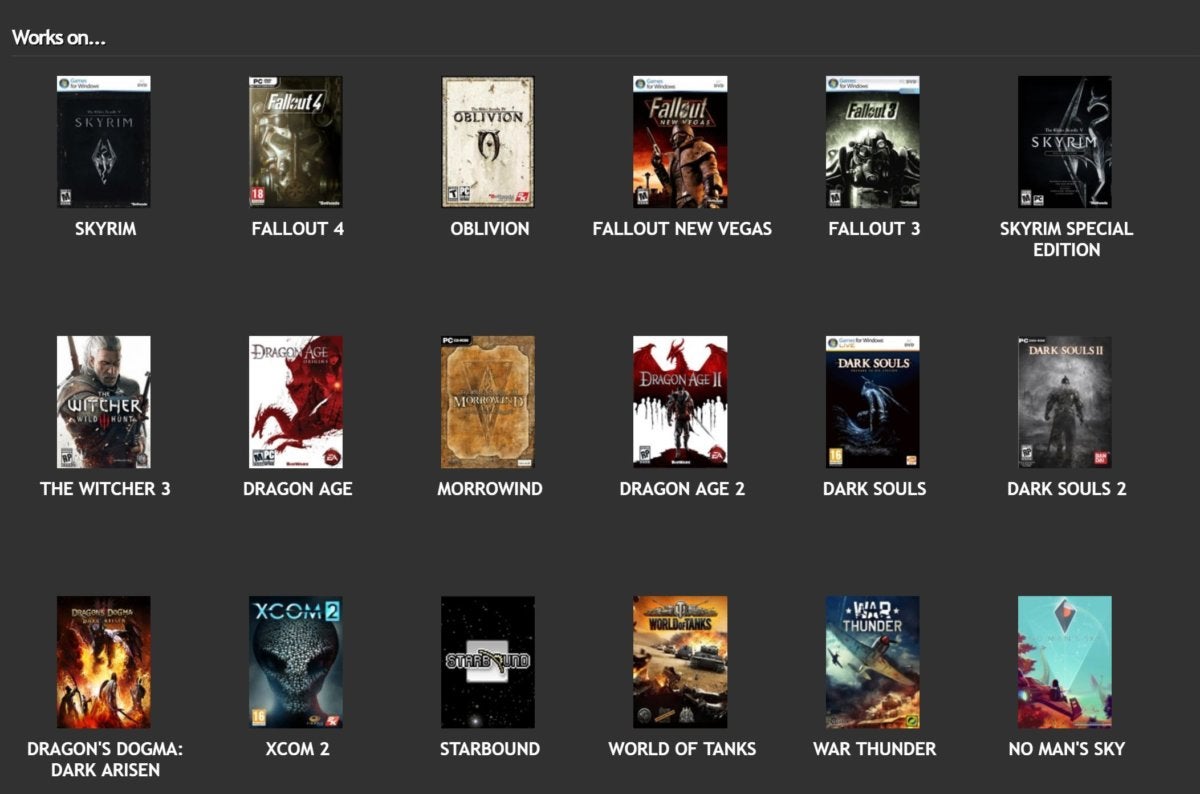 Nexus Mods
Nexus Mods Nexus Mod Manager works seamlessly with many games with thriving modding communities.
The Nexus Mod Manager, which is still in open beta, works alongside the popular Nexus Mods site by handling mod file storage location, downloads management, and many installation paths. For the mods that support it, this allows you to just download and install from a single location instead of having to navigate a bunch of different game folders to make sure all the pieces are in place.
Steam
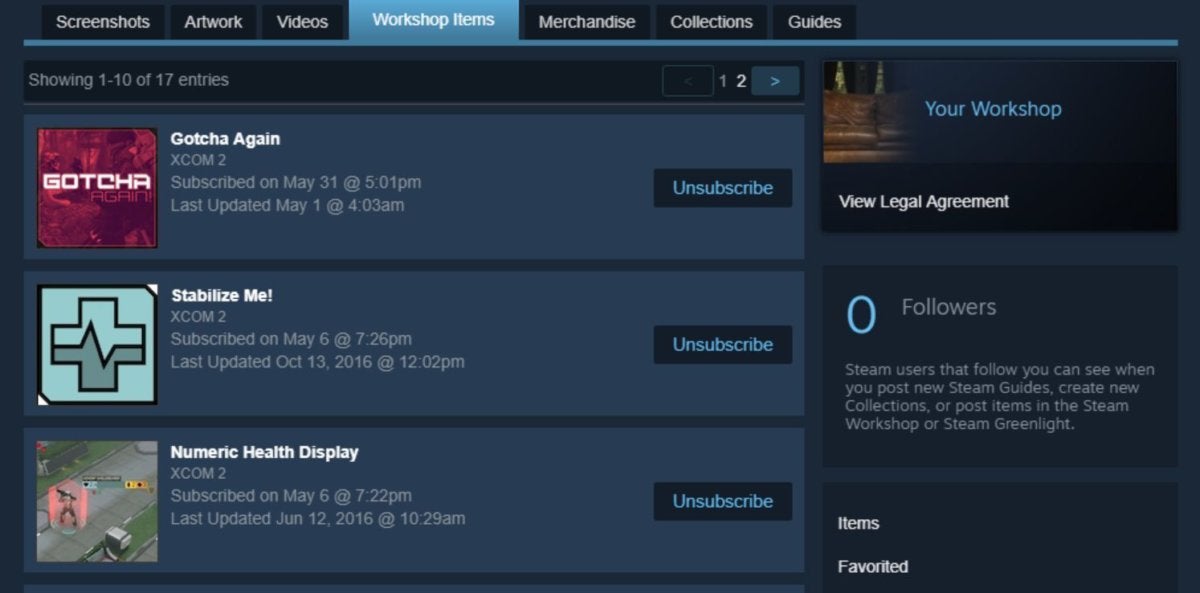 Brad Chacos/IDG
Brad Chacos/IDGManaging Workshop mods is easy in Steam.
It should be no surprise that if you want to use Steam Workshop mods, you need to use Steam. The Workshop features within Steam allow you to subscribe to mods for games you own on the platform. Once you do, Steam will handle the installation part, then keep your mods automatically updated, just like the rest of your games library. Not all Steam games support Workshop, though.
Twitch Desktop App (previously Curse)
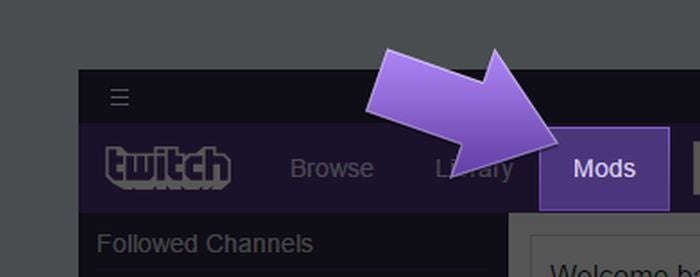 Twitch
Twitch The Twitch Desktop App has a handful of Twitch and community features, but recently, the mods application features from the previous Curse app has been rolled into it. Much like the Nexus Mod Manager, you can install mods through the app instead of dealing with each mod installation effort individually.
Finding game mods
Finding mods for games is the easy part. It’s picking and choosing which specific mods you want that can get difficult. Regardless, there are all kinds of sites and services that host mods for gamers to download and use. Here are some of the largest repositories.
Nexus Mods
Nexus Mods is one of the most popular mod hosting sites, particularly for Bethesda’s Elder Scrolls and Fallout games. The Nexus sites are primarily community-driven, with free hosting and distribution of mods made by just about anyone.
Mod DB
Mod DB is one of the oldest modding resource sites out there. It’s typically known for being the popular host for mods of older games (like the original Half-Life) or being the primary distributor of the very popular Brutal Doom. In 2016, Mod DB acquired GameFront—which used to be the largest mod hosting site in the world—after GameFront shut itself down.
Steam Workshop
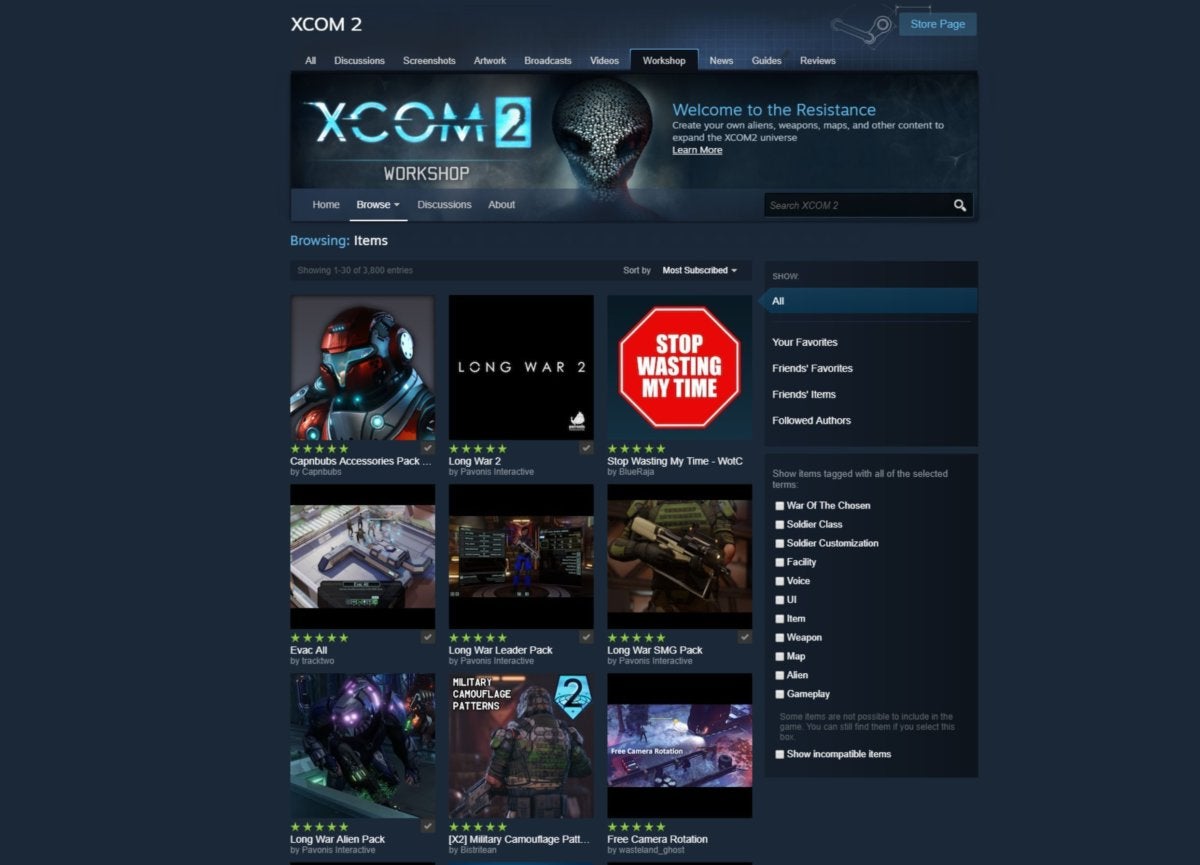 Steam
SteamXCOM 2’s Steam Workshop page.
If you couldn’t already guess, the Steam Workshop is a mod hosting resource for games on the Steam platform. Game developers can support the Steam Workshop for their games, which then allows communities to create and change the game, while handling all mod hosting and sorting through Steam directly. Steam Workshop makes modding dead simple.
Curse Mods
Curse, recently acquired by Twitch, is a multimedia organization that holds a wide range of gaming-centric media. Curse has been most popular for hosting add-ons for World of Warcraft and other MMOs.
Bethesda Creation Club
At E3 2017, game publisher Bethesda introduced the Bethesda Creation Club, a curated marketplace for mod creators to be able to make and sell content for Fallout 4 and Skyrim Special Edition. You’ll find the Creation Club baked right inside those games. The idea of paid mods may be a touchy subject for some, though.
Game specific resources
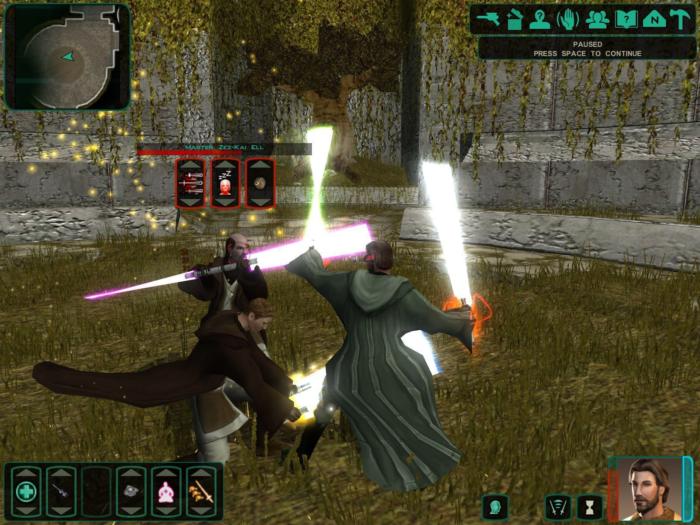 The Sith Lords Restored
The Sith Lords RestoredThe Sith Lords Restored mod for Star Wars: KOTOR II.
Several games and series have specific community sites where most of their mods originate. The popular mods from these sources may be rehosted elsewhere, but these niche sites tend to be the primary community for the games. Here are some examples:
Fallout 1 and 2 – No Mutants AllowedMinecraft – MinecraftModsStar Wars: Knights of the Old Republic – Deadly Stream
On the other hand, some especially useful mods support many different games. Two notable multi-game mods are ENBseries, which enhances the graphics in many modern titles, and the_bigg’s Widescreen Mod, which adds much-needed widescreen support to classic CRPGs like Planescape: Torment, Baldur’s Gate, and Icewind Dale.
Managing PC game mods
Steam, Nexus Mod Manager, and the Twitch Desktop App are also tools for managing your mods. They show you the mods you have installed, include abilities to enable or disable individual mods, and can help let you know when an update is available.
That said, there are some mod management tools available that help in specific games. If your game of choice has enough mods, chances are someone has developed a manager for them. Here are a few popular ones:
Grand Theft Auto 5 Mod ManagerStar Wars Knights of the Old Republic Mod ManagerDragon Age Inquisition Mod ManagerSins of a Solar Empire Mod Manager
Bethesda’s role-playing games have been a modding favorite for years now, and legions of mods are available all of them. Because of that, modders also created several key Bethesda-focused management tools.
Mod Organizer
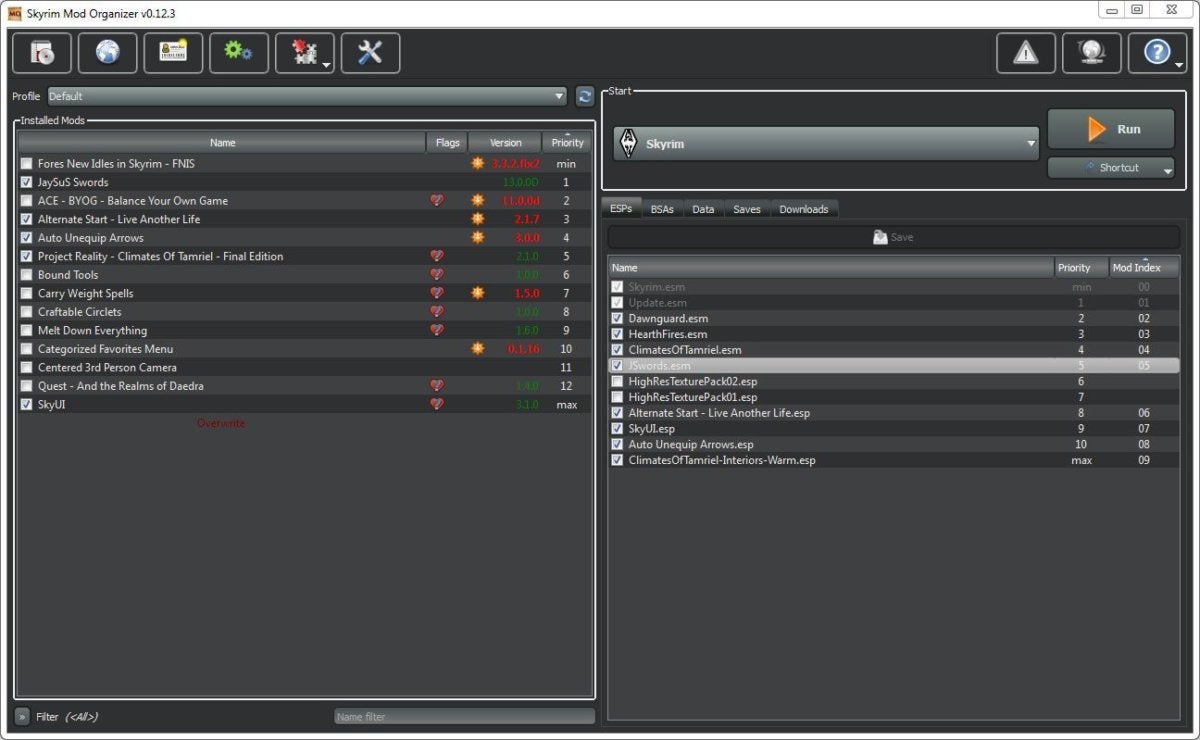 Tannin
Tannin Mod Organizer.
Once the preferred mod manager for Elder Scrolls and modern Fallout games, the Mod Organizer offered much of what the Nexus Mod Manager can do with some additional features, such as being able to open up game’s data archives and save files for direct manipulation. Fun fact: Nexus Mods hired Tannin42, the creator of Mod Organizer, to work on the Nexus Mod Manager in late 2016.
LOOT: The Load Order Optimisation Tool
When you’re trying to play with a large number of mods in modern Bethesda games, the order in which they load up can be important. LOOT helps you organize your mod list and load order, saving you the time and energy of having to learn what most of the order needs to be yourself. Additionally, LOOT can help point out opportunities for optimization in some mods, such as redundant components or dirty edits that will only slow things down.
Wrye Bash
Think of this as the manual version of LOOT, with some Mod Organizer features on steroids. Wrye Bash helps you get into the thick of things in terms of mod management by helping you access the parts of mods that might need cleaning or even file merging.
Now that you’ve learned how to mod PC games, it’s time to dig into why you’d mod PC games.
Next page: What is game modding? Why you’d want to mod PC games.
What is PC game modding?
Modding is about fine-tuning games to suit your tastes, making changes and alterations to games based on whatever you (and mod creators) see fit.
You could change something visual, you could change how your character gains power, or you could swap out the entire game soundtrack for a fan-made orchestral version. Some folks are picky about the lighting; others may change up the game’s difficulty in ways that the default Easy to Hard scale doesn’t quite fulfill; and some may just be patching some buggy parts for the benefit of the game’s fan community.
While specific mods out in the world will have some crossover, we’re going to break mods down into four major categories:
AestheticsTechnicalGameplayContent
Types of PC mods
Aesthetics
The most popular mods for the most popularly modded games tend to be aesthetic mods that tweak the look and sound of a game. For many, it’s about making things prettier, more realistic, or to push their hardware a bit further than the game can on its own.
Take Skyrim, one of the most heavily modded games of all time, and take a look for some of its mods. The most subscribed mod on Skyrim’s Steam Workshop is a water retexture mod called Pure Waters by Laast. At NexusMods, the most downloaded Skyrim mod is a high resolution textures pack called Skyrim HD – 2K Textures. Skyrim has so many amazing visual mods that it’s easy to see why all kinds of games are finding new life through HD remakes.
But a picture is worth a thousand words. Here’s Skyrim running unmodded, but with Bethesda’s HD Texture packs installed…
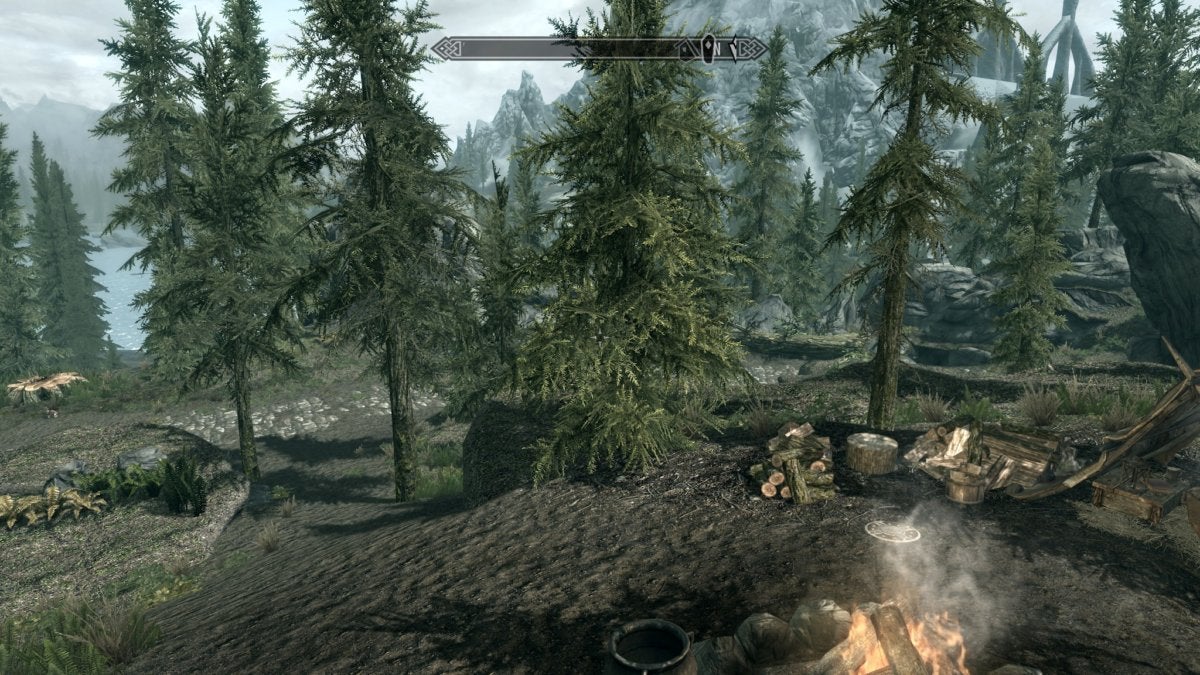 Kevin Casper
Kevin CasperVanilla Skyrim.
…and here’s Skyrim with a slew of graphics mod installed: Climates of Tamriel, Natural Grass Texture Floor, Pure Waters, Realistic Lighting Overhaul, ENB, RealVision ENB, Skyrim HD – 2K Textures, Static Mesh Improvement Mod, Skyrim Distance Overhaul LOD Improvement, and Ultimate HD Fire Effects. Click the images to enlarge them if you want to bask in all the improvements.
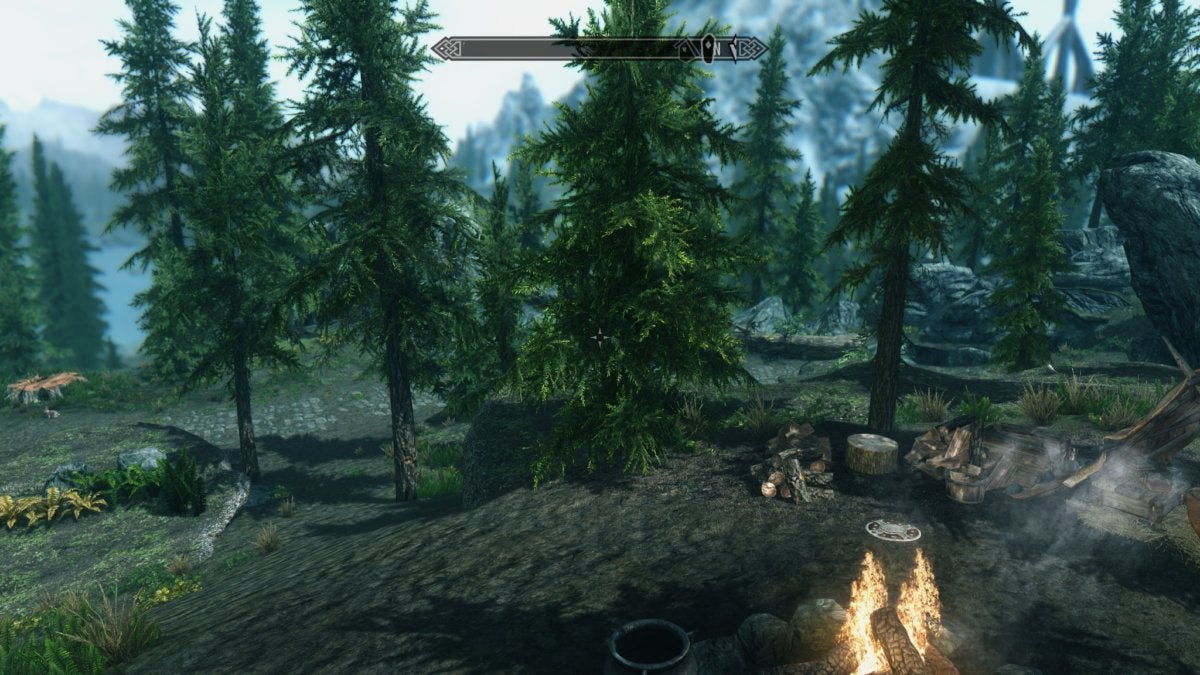 Kevin Casper
Kevin CasperModded Skyrim.
Audio mods are only popular in some games, but they can do interesting things. Fallout 3’s GNR Enhanced adds theme-suitable music the radio and improves some of the immersion in the scripts of Three Dog, the game’s radio DJ. Other audio mods focus on quality, such as swapping out the sounds of the various guns in the games for what’s considered more accurate, higher quality versions. Towbie’s Realistic Weapon Sounds for Fallout 4 is a good example.
But there’s also a reverse side to aesthetic mods, especially visual ones. Some mods focus on decreasing visual quality, to allow games to run better on underpowered hardware or simply increase the frame rate for a more buttery feel. Many competitive players reduce graphical quality just enough so that the important details are still visible, but the framerate can be as high as the hardware will allow it to be. If a game’s options don’t quite cover what you need, you’d look to something like Torcher’s Texture Optimization Project for Fallout 4.
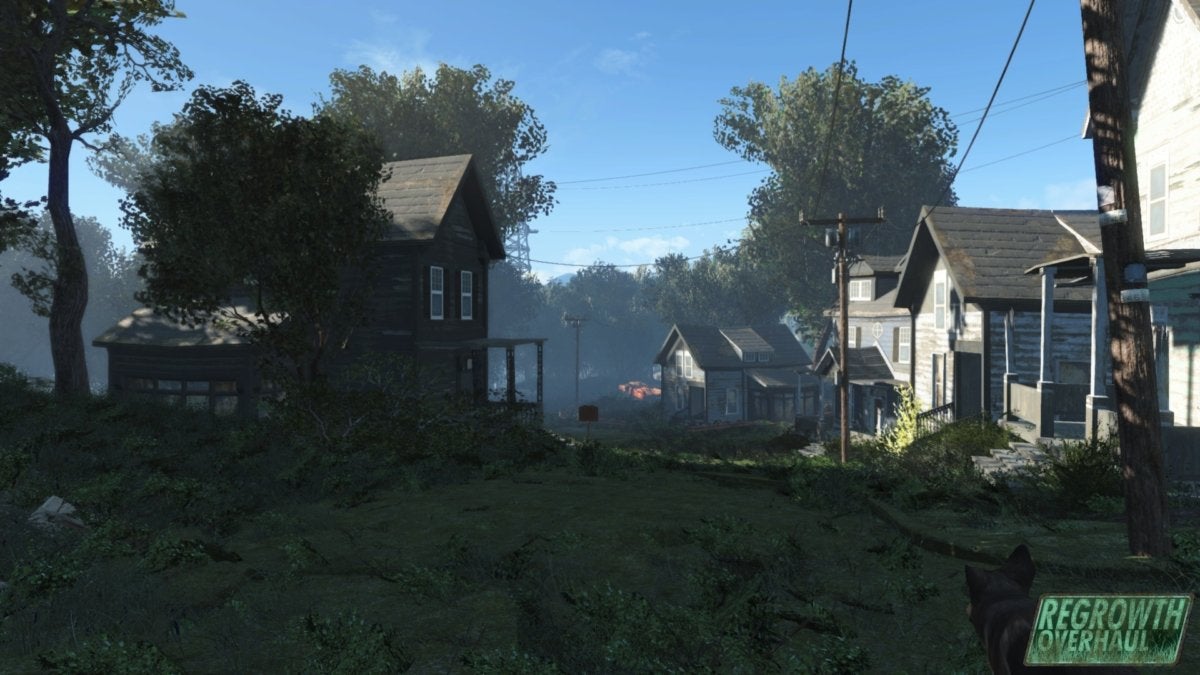 Spiffyskytrooper
Spiffyskytrooper Spiffyskytrooper’s Regrowth Overhaul mod adds a lot more green to Fallout 4‘s postapocalyptic wasteland.
On this note of frame rate optimization, we’re getting dangerously close to what we’re calling technical modding.
Technical
Fixing bugs and enhancing system compatibility are the key reasons for technical modding. Sure, it may feel like every classic game is getting an HD remaster this week, but not all fan favorites are so lucky. A supportive modding community can help add a much-needed layer of modern polish.
For example, the legendary isometric RPGs of yesteryear—like Baldur’s Gate, Fallout, and Planescape Torment—were designed for 4:3 display ratios and resolutions in the 640×480 through 1024×768 range. Nowadays, most gamers are running 16:9 ratios supporting 1920×1080 and higher resolution. Playing the older games on modern monitors results in ugly black bars surrounding the picture, or worse, visual stretching and distortion. To fix this, mods like the_bigg’s Widescreen Mod change how the game scales up for higher resolution, though you may need to pair it with something like GhostDog’s Planescape: Torment UI mod. GhostDog’s mod tweaks the UI and text in classic games running at modern resolution, so everything can be seen, readable, and not wildly warped.
Here’s how Planescape: Torment looks running windowed at default resolution on a 1440p display…
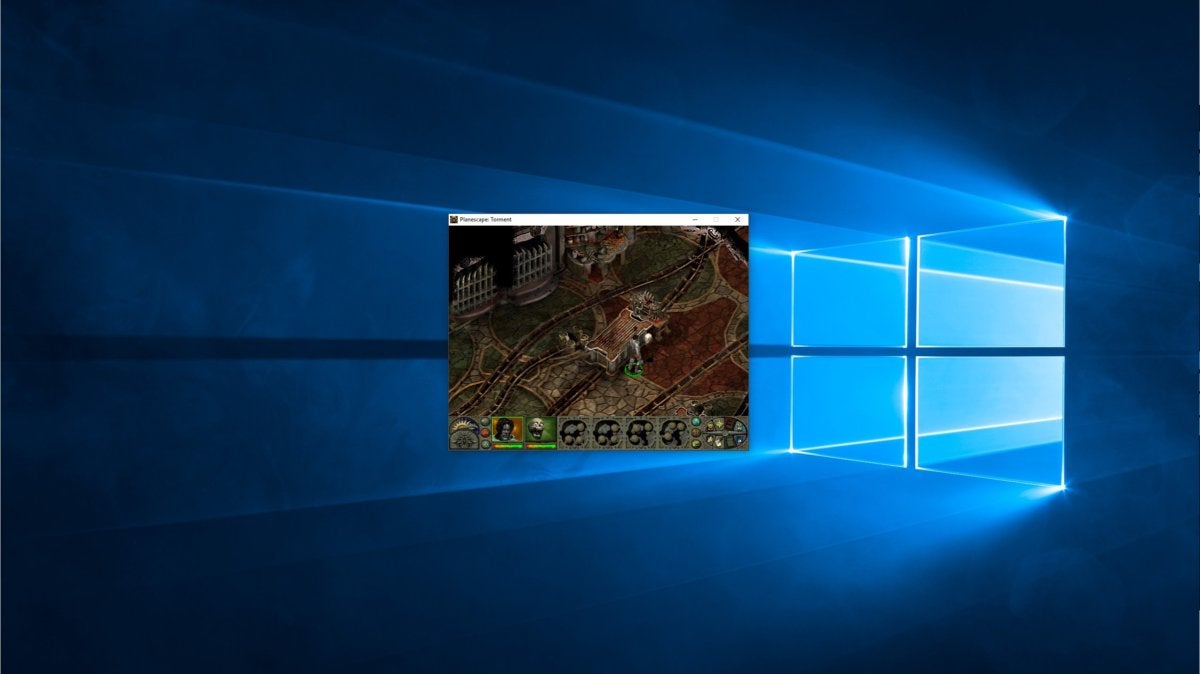 Kevin Casper
Kevin Casper…and here’s Planescape: Torment in 1440p resolution using the aforementioned mod duo. Big difference, eh?
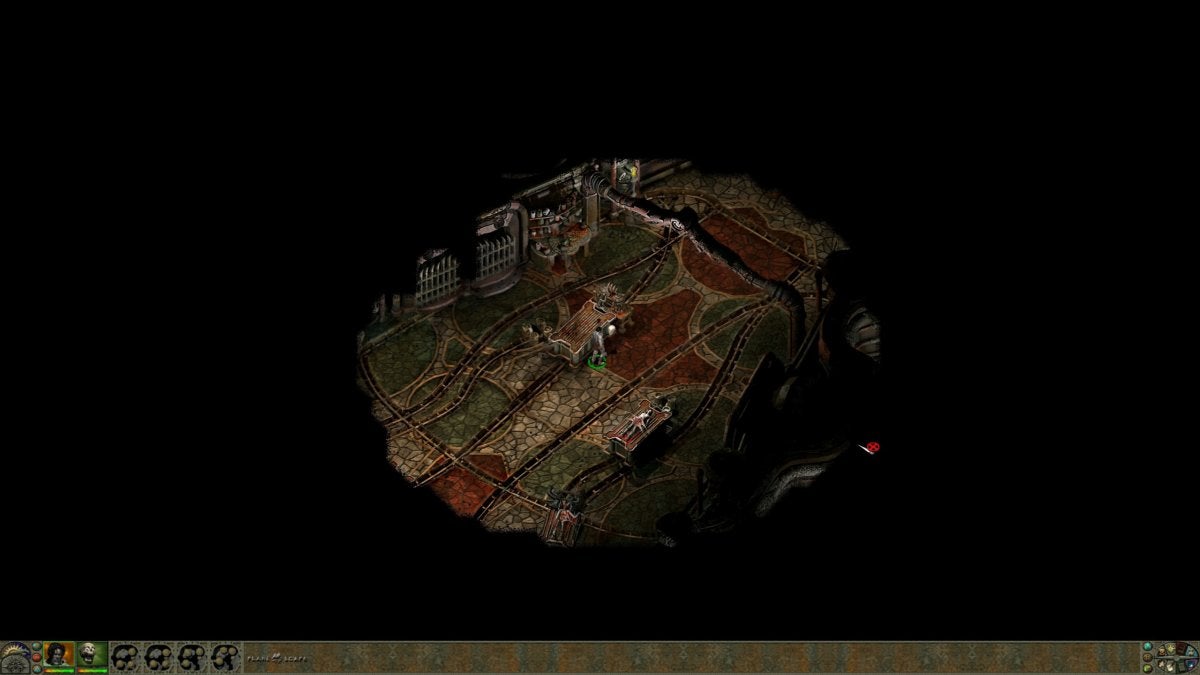 Kevin Casper
Kevin CasperSome mods take aim at player-discovered bugs. Bethesda’s games are notorious for their (sometimes unsettling) bugs, and many Elder Scrolls modding guides start by pointing to community patches that squash them or fix hardware compatibility problems. Other games, such as Star Wars Knights of the Old Republic: The Sith Lords, may contain unfinished content, causing some weird dead ends in gameplay and storytelling. Communities have banded together to resolve these in different ways, such as The Sith Lords Restored Content mod, which utilizes unused assets in the original game as well as original efforts to effectively close off the loose ends.
But this kind of mod taps into the gameplay and content of its game, so let’s move on!
Gameplay
Gameplay mods change how you play a game, covering aspects like difficulty scaling, character progression systems, control schemes, adding or removing certain mechanics, or even interface changes.
A perfect example of a mod that alters difficulty is Brutal Doom. This mod for the earlier Doom games—not the 2016 edition—effectively cranks everything up to 11 by adding a ton of enemies and giving foes new tactics. (It also greatly expands the gore and destruction that Doom is famous for.)
The first Dark Souls game on PC used a sort of emulation to effectively translate keyboard and mouse into controller actions, and generally lacked control options. The resulting frustrations lead to the creation of the mod Dark Souls Mouse Fix and its current iteration, Dark Souls Input Customizer. These mods ditched the emulation and added raw mouse input, mouse acceleration and sensitivity settings, and key mapping. These control mods not only provide options for PC purists, but also opportunities for gamers with disabilities who depend on custom hardware and button mapping to get their game on.
Many gameplay mods can complement each other that provide a fresh experience to a game. Grim Dawn, an action RPG by Crate Entertainment, has a popular mod compilation called DAIL that combines a bunch of gameplay mods into one. DAIL can adjust the number of enemies that spawn in the game for a range of new difficulty options; it triples the amount of class trees for your character; and includes additional game types that mirror Diablo 3’s rift system or Gears of War’s Horde Mode… which takes us to the final mod category.
Content
Sometimes, you just need more. The game was either so good, or missing just enough, that someone felt the need to add even more to it. Content mods tend to be a combination of the previous categories plus additional components that add something new to the game. Mods like the earlier mentioned The Sith Lords Restored Content and Minecraft’s Tinker’s Construct introduce all kinds of content, from quests to equipment, that were not previously in the game. The additions have their own visuals, sounds, and gameplay changes all combined. They’re basically unofficial expansions.
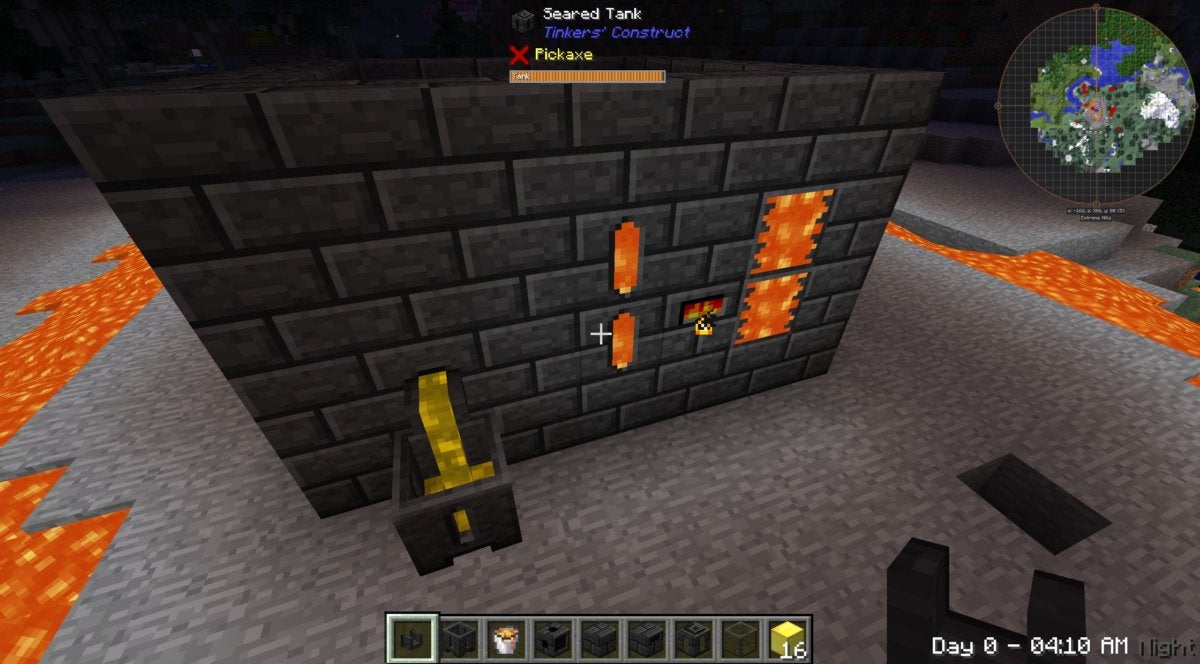 Kevin Casper
Kevin CasperMinecraft with FTB Beyond modpack installed.
Some mods drastically overhaul the entire game, and sometimes spark new games and genres of their own. League of Legends, DOTA, and the entire MOBA genre was birthed by a mod for the original Starcraft called Aeon of Strife. Counter-Strike started as a Half-Life mod. DayZ and battle royale games like PlayerUnknown’s Battlegrounds sprung from the Arma modding scene. And you can find full-length expansions, new factions, and more for Elder Scrolls games.
These are heavy duty mods. If you want to learn more about content and “total conversion” mods, check out PCWorld’s list of 10 influential game mods that truly changed PC gaming.
Bottom line
Modding video games is a lot like playing card games or board games with house rules. While some people like to just skip the jail mechanic in Monopoly, others might want to pull out their favorite Warhammer 40k figure to take over the board in the name of the Emperor. Likewise, some gamers might want to replace Skyrim’s dragons with Macho Man Randy Savage or Thomas the Tank Engine. Anything is possible!
Now you’re armed with everything you need to know to start modding PC games. Have fun!



